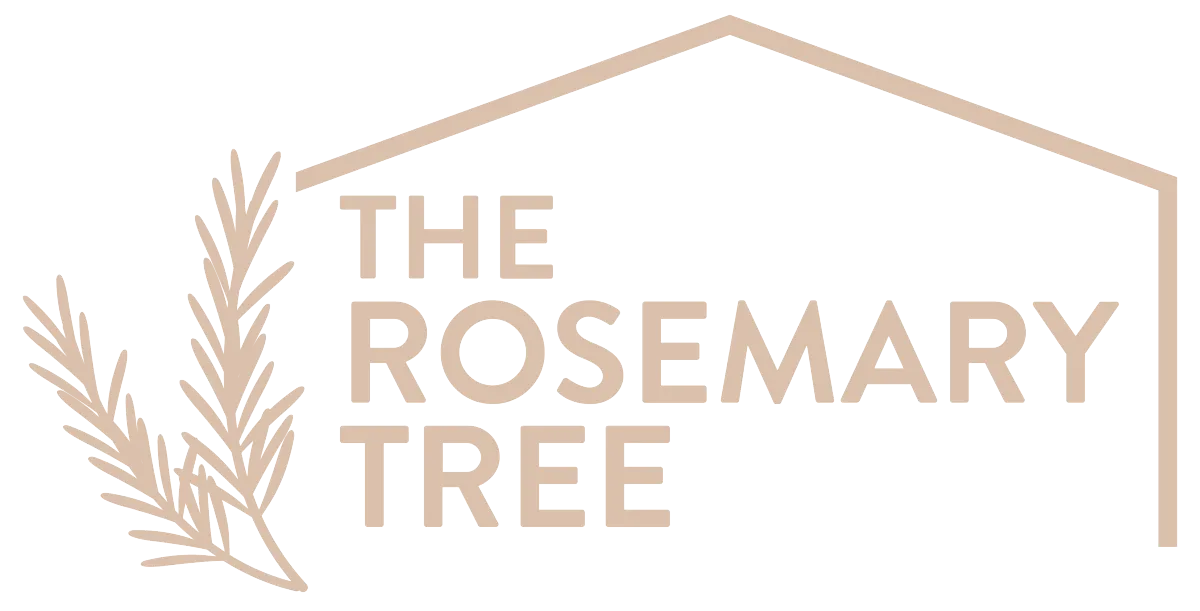CONTACT US: 602-932-3436
Partial Hospitalization Program In Phoenix, Arizona
Support for Teens.
Peace of Mind for Parents.
The Rosemary Tree’s Adolescent PHP (Partial Hospitalization Program) offers a powerful path to healing for teens who need more than weekly therapy, without the need for overnight stays.
This five-day-a-week program provides 20+ hours of therapeutic care, blending clinical excellence with creative, play-based modalities that teens actually connect with. We guide them through emotional highs and lows using evidence-based practices like DBT, EMDR, and family systems therapy, all in a setting that feels more like a supportive community than a clinical environment.

What is PHP:
The Partial Hospitalization Program (PHP) offers a structured, intensive mental health treatment option foradolescents. Operating five days a week, PHP provides the support of a hospital program without overnightstays. It helps clients balance recovery with daily life, promoting independence and resilience.
How PHP works:
Participants receive at least 20 hours of care weekly, including personalized therapy for the individual and family, academic guidance, and psychiatric support. Our program utilizes a variety of modalities including dialectical behavior therapy (DBT), family systems, and trauma-informed care (EMDR).
Exiting the program:
The program fosters a sense of community, where clients connect and support each other in their journey to recovery. We ensure a smooth transition to less intensive services, like our Intensive Outpatient Program (IOP), to support long-term recovery and independence.
NOTE: Our PHP is in-network with BCBS, Aetna and Cigna.
Who is this for?
Our program is catered to teens and adolescents who are facing the following:
Anxiety
Depression
Trauma
Emotional disregulation
Our program is catered to teens and adolescents who need:
Structured support beyond what outpatient therapy provides
An alternative to full inpatient care.
Whether your teen is struggling silently or in crisis, our team is here to meet them exactly where they are — and help them move forward.
About Our Partial
Hospitalization Program
PHP provides the support of a hospital program without overnight stays. It helps clients balance recovery with daily life, promoting independence and resilience.
Structured Schedule of Intensive care
Our program is five days a week with 20 hours of care weekly, including:
Academic support
Teen group
Individual sessions
Family sessions
Parent group
Rooted in Multiple Clinical Approaches
Our program utilizes a variety of modalities including:
DBT
EMDR
Family systems
Trauma-informed care
To increase emotional regulation, people skills, distress tolerance, and lasting healing.
What makes our program different?
Personalized Therapy Plans
No one-size-fits-all approach. Every teen gets a tailored roadmap for healing — and a team that’s truly in their corner.
Whole-Family Support
We believe healing is a family journey. Through parent groups and family sessions, we equip caregivers with the tools to better connect, support, and communicate with their teen.
Creative + Clinical Healing
Our approach integrates play, nature, movement, and expression. It’s not just therapy, it’s transformation.
Academic & Life Balance
Teens stay engaged with school while building emotional resilience. We provide academic support so they don’t fall behind during their healing process
Resources and Guides for Parents
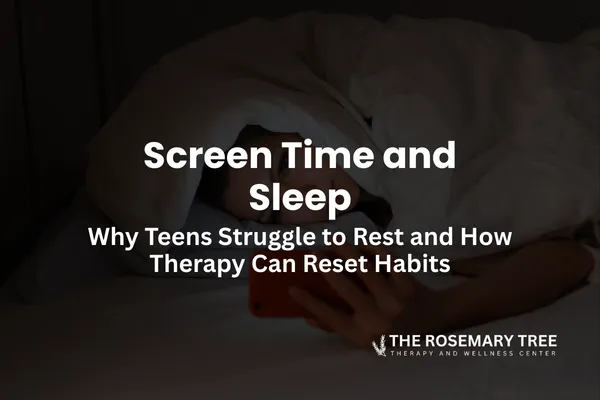
Screen Time and Sleep: Why Teens Struggle to Rest and How Therapy Can Reset Habits
If you’ve ever found your teen scrolling at 1 a.m. and dragging through school the next day, you’re not alone. Sleep problems fueled by late-night screen time are one of the top mental health challenges teens face today.
Good sleep isn’t just about rest, it’s critical for mood, focus, and brain development. Therapy helps teens reset digital habits and rebuild healthy sleep routines.
Why Screen Time Disrupts Sleep
Blue Light Exposure: Suppresses melatonin, making it harder to fall asleep.
Overstimulation: Gaming or social media increases brain activity right before bed.
Fear of Missing Out (FOMO): Teens stay online late to stay connected.
Irregular Sleep Cycles: Staying up late leads to sleep debt, affecting school performance.
Signs of Sleep Problems in Teens
Daytime fatigue or frequent naps
Irritability, mood swings, or anxiety
Declining grades and focus
Headaches or physical complaints
Staying up late even when tired
How Therapy Supports Healthy Sleep
At The Rosemary Tree, therapy helps:
Recognize unhealthy screen habits
Learn mindfulness and relaxation techniques before bed
Build balanced routines for school, activities, and rest
Improve communication with parents around screen limits
Address underlying anxiety or depression fueling late-night screen use
Practical Tips for Parents
Encourage “screen-free” zones in bedrooms.
Set consistent sleep and wake times.
Model healthy digital habits yourself.
Introduce calming nighttime routines (reading, journaling, relaxation).
Seek therapy if sleep issues persist despite changes.
Learn More From Trusted Resources
Final Thoughts
Sleep deprivation isn’t just a phase, it impacts mental health, school performance, and family harmony. Therapy provides teens with the tools to manage screen time, reset habits, and reclaim the rest they desperately need.
At The Rosemary Tree, we help families find balance between technology and well-being. Book your consultation today to give your teen the gift of healthy sleep.
A Safe and Supportive Space for Youth at Our Arizona Treatment Center
We offer our services in an intentionally home-like environment at our residential-style treatment center in Arizona. Our goal is to create a space where adolescents feel comfortable—not clinical—while receiving care at our facility for adolescents.
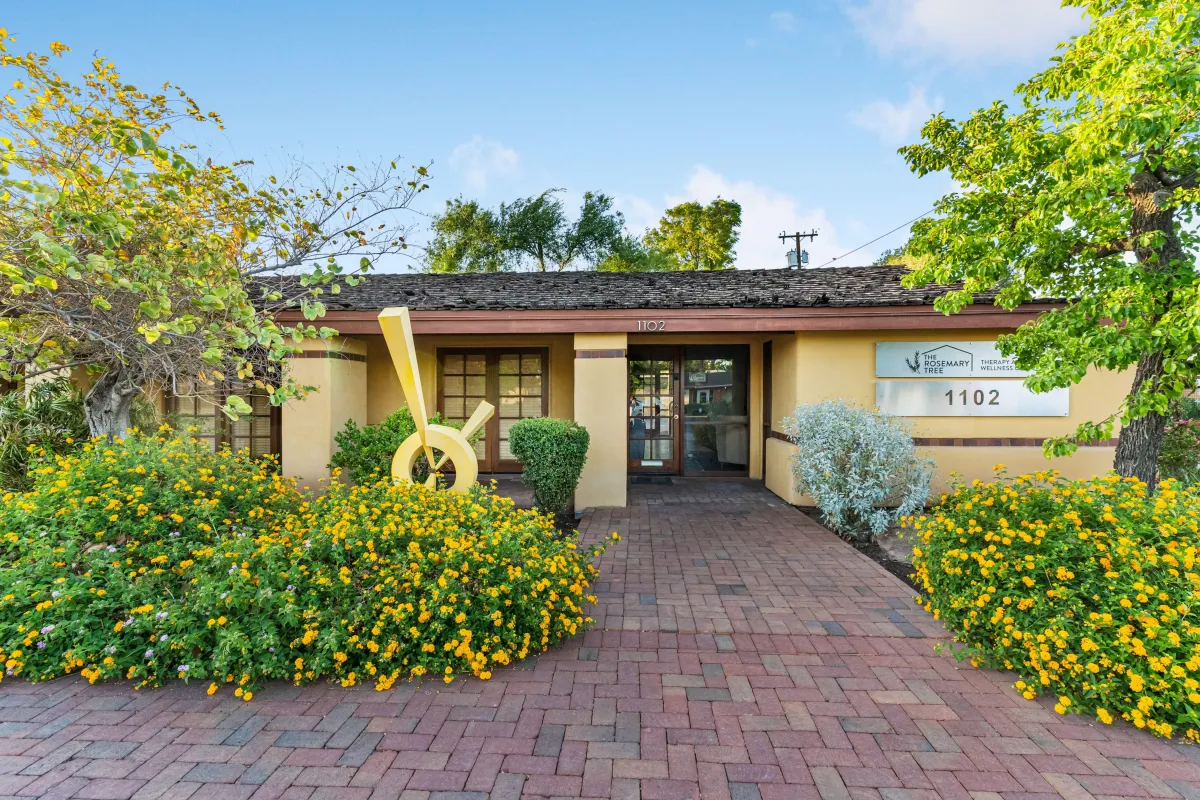
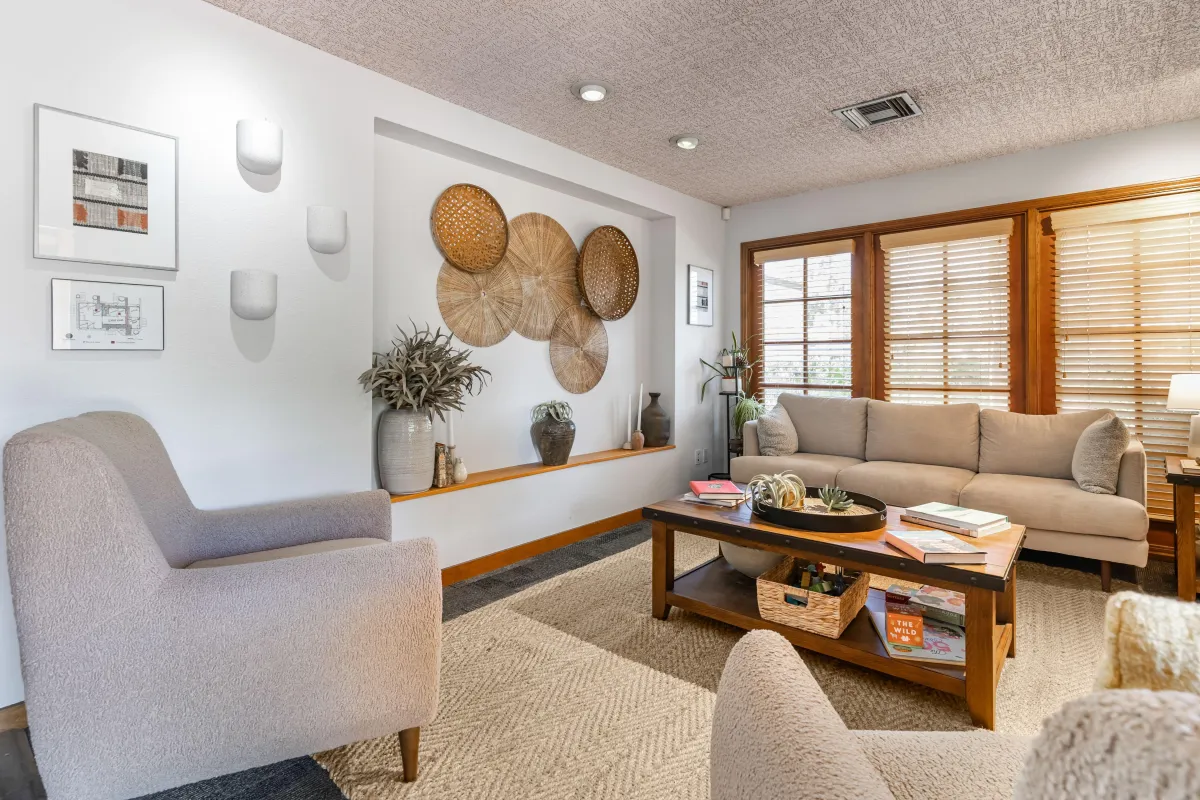
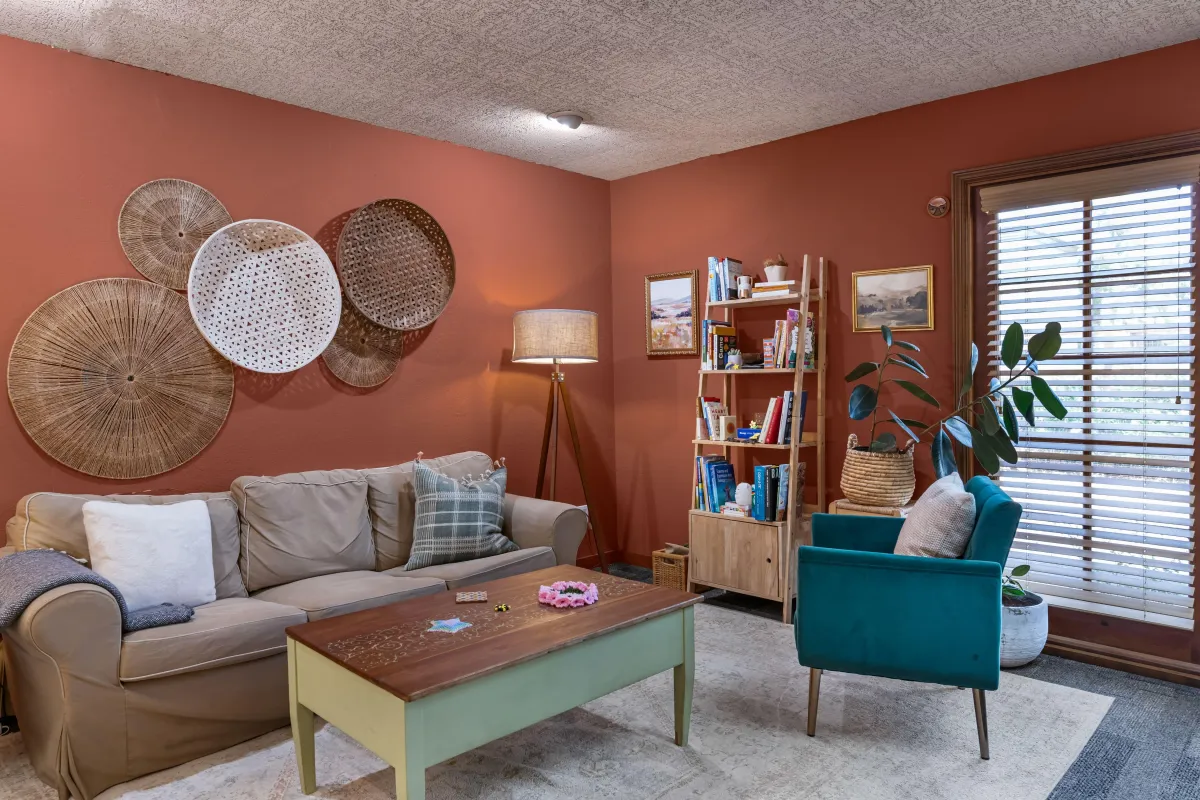
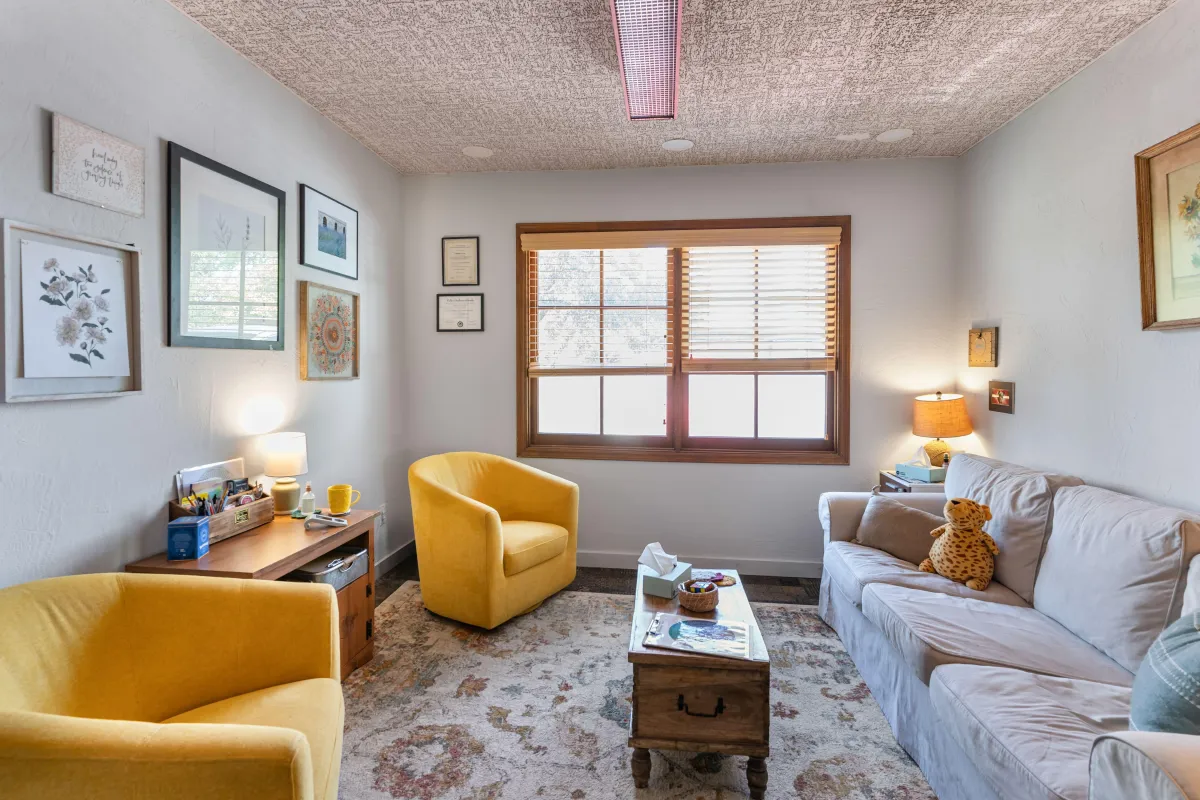
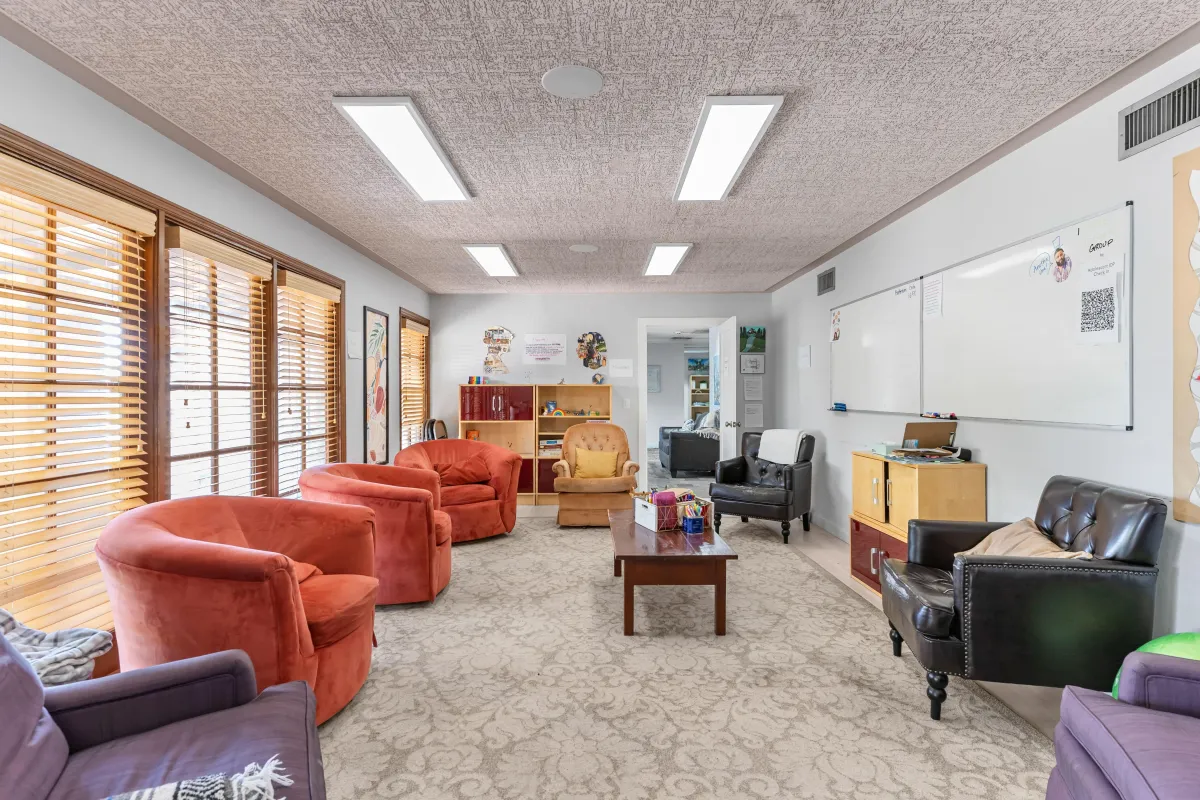

The Rosemary Tree Mental Health Treatment Centers in Phoenix, AZ
The Rosemary Tree operates residential treatment centers for youth in Arizona, offering specialized care for a variety of personal and relational challenges. Through our residential treatment facility for adolescents, we provide inpatient residential care, outpatient intensives, marriage and relationship counseling, family counseling, individual counseling, and more.
Our partial hospitalization program in Phoenix, intensive outpatient program in Phoenix (IOP), and DBT therapy programs are among the most clinically effective in the state. As a trusted residential treatment Arizona provider, we offer an intensive outpatient program in Phoenix, AZ, designed to support individuals needing structured care while maintaining daily responsibilities. Our specialized IOP for adolescents and IOP for youth provide tailored therapeutic approaches, ensuring young individuals receive the guidance and support they need. We integrate evidence-based treatments such as Narrative Therapy, Dialectical Behavioral Therapy (DBT), Eye Movement Desensitization and Reprocessing (EMDR), Internal Family Systems (IFS), Cognitive Behavioral Therapy (CBT), Acceptance and Commitment Therapy (ACT), Restoration Therapy (RT), Sensorimotor, Gestalt, and Art Therapy, among many others.
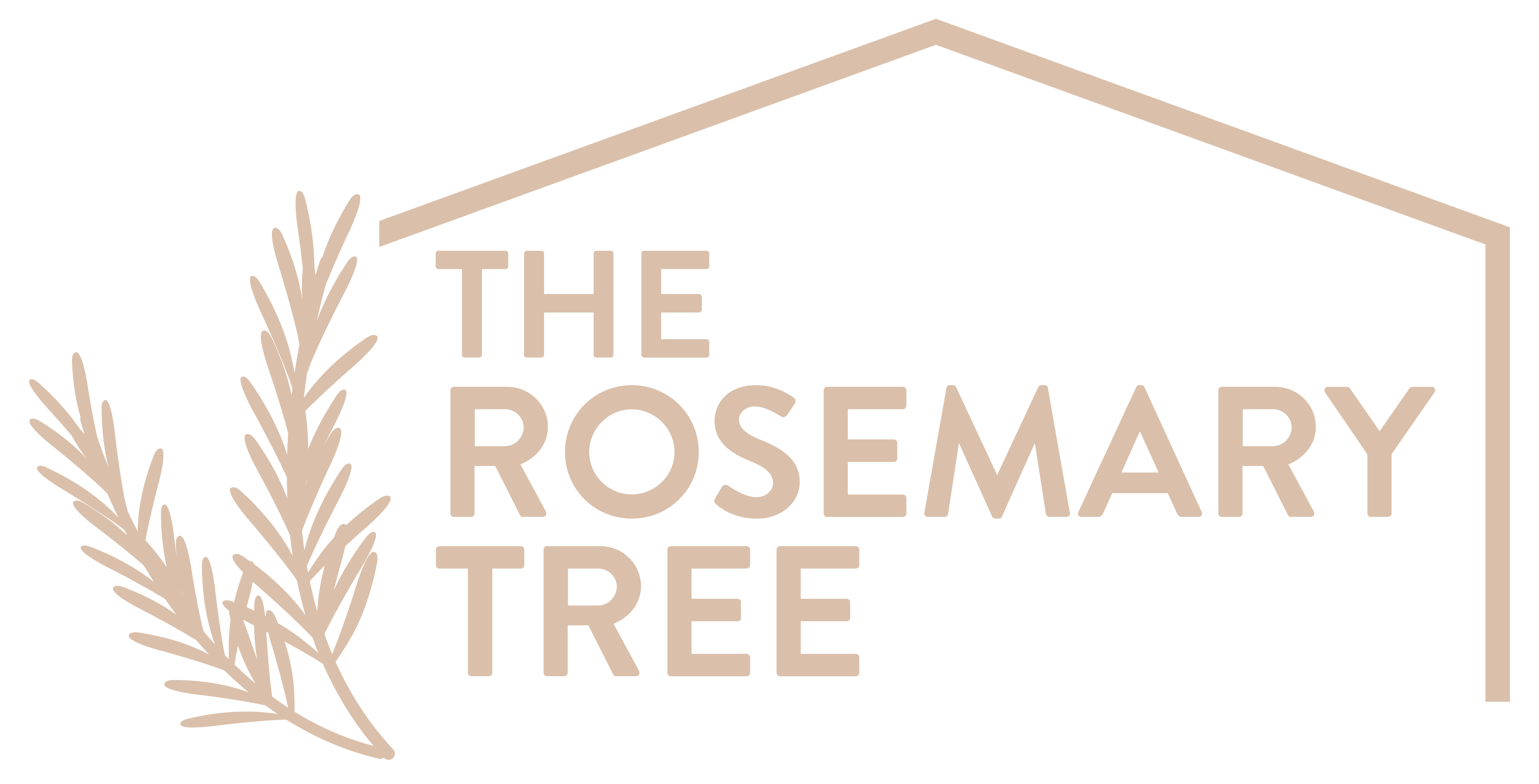
⚡ Site Built with BAMF Technology ⚡
